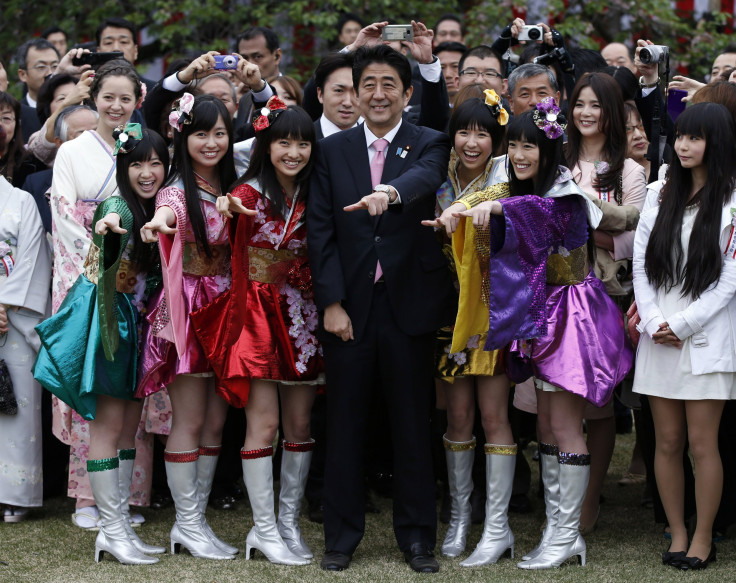Japan Blackface Music Show: Fuji TV Cancels Segment After Public Outcry

Fuji TV pre-emptively canceled a segment in a weekly music show that was set to feature performers in blackface, the Japanese television station acknowledged Monday. The outcry arose when New York Times reporter Hiroko Tabuchi and Wired writer Daniel Feit tweeted about a collaboration between the Japanese pop groups Momoiro Clover Z and Rats & Star, showing images of them rehearsing in blackface. The news resulted in a petition to remove the segment.
“[The decision] was very gratifying, but at the same, I would still like to know exactly why they didn’t [air the segment]. I imagine the petition had at least some factor, but I don’t know how much of a factor it played,” Baye McNeil, an African-American author and blogger in Japan who started a petition for the segment’s cancellation, told the Japan Times. “I really do believe that their intention is to pay homage to black people and black music. But I think blackface is a horribly inappropriate way to do it.”
Why Japan needs to have a conversation on racism (1) https://t.co/o07lYKoYri Preview of a TV show airing next month. pic.twitter.com/KDoDPVz6xJ
— Hiroko Tabuchi (@HirokoTabuchi) February 12, 2015McNeil's petition gathered about 4,500 signatures, and was accompanied by an open letter to U.S. Ambassador Caroline Kennedy asking Fuji TV to scrap the segment, especially in light of first lady Michelle Obama's visit to Japan later this month.
Images of the performers rehearsing in blackface were released early February and the two groups were supposed to perform the act for the Saturday's broadcast.
Japanese Twitter and forum users were divided on whether the images were racially insensitive. “Aren’t the white gloves a no-no too? Whatever it is, I don’t think there is a need for this kind of get-up in this day and age,” said a user on Japanese forum site 2chan.
Blackface is still popularly seen in some Japanese music subcultures, such as the “burapan” style of hip-hop emulating African-American culture and the cappella group Gosperats known for wearing blackface during performances. Rats & Star, heavily influenced by Motown according to Kotaku, had also been wearing blackface for their performances since the 1970s. McNeil said he did not know if Japanese music groups know of the negative implications of blackface when they use it, according to Japan Times.
“Once you’re made aware of [what blackface means], you should adjust accordingly, especially if you’re going to be a part of the global community. I mean, with the 2020 Olympics coming up, the whole world is coming to Japan,” McNeil told Japan Times.
© Copyright IBTimes 2024. All rights reserved.






















